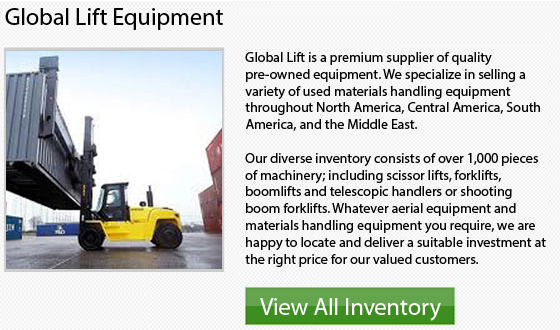
Electric forklift models make up nearly 60% of the entire material handling market. Powering these units are extremely heavy lead-acid batteries. Due to their massive weight, these batteries naturally offer a lot of the counterweight.
The counterbalanced version of lift trucks have been classed as Class 1 lift trucks by the ITA. Class 1 typically refers to electric forklifts made for general applications and stand-up counterbalanced forklifts. Though the first expense of an electric lift truck is more than IC lift trucks, electric units are less expensive to use eventually. This is due to their lower fuel and maintenance expenses.
The majority of electric forklift models which have been manufactured and engineered in North America, are utilized mainly in indoor environments. Electric forklifts have usually been limited to indoor use with smooth and clean surfaces. With the introduction of several new Class 1 items, it is becoming increasingly possible to utilize electric rider units in some outdoor operations.
Due to the fact that electric forklift units provide no harmful emissions, they are usually chosen for indoor operations when compared to IC lift trucks. Electric models can complete a full 8 hour shift on one battery charge and are very quiet when in operation. The batteries for electric units weigh roughly 3,000 pounds. The job of reloading, recharging and removing the batteries could be time consuming and burdensome. This situation usually happens at a battery charging zone or an area which is specifically used for handling batteries. There are developing fast charging technologies that will be available on the market and these new systems are changing the battery charging method.
The Proper Fit
A main factor connected with any kind of forklift is using the right size of unit to complete the specific operation. The application itself must always dictate what product is selected.
Clients are striving to find lower operating costs and more effective means to lower operating costs, all the while increasing their overall productivity, particularly because the economy becomes more complex and competitive. Using the wrong size of lift truck could greatly slow things down and have a huge effect on the bottom line and success of a business, while negatively affecting the production on the jobsite.
If you are uncertain about what specific kind of lift truck you need, a reliable dealer will be able to ask you the correct questions that would enable you to make a correct choice. Lots of dealerships offer rentals of their machines as well and this is a good way to try before you commit to such a big purchase. It is also a good way to try various units out to see which ones bring you the best production and which ones you and your drivers are the most comfortable with.